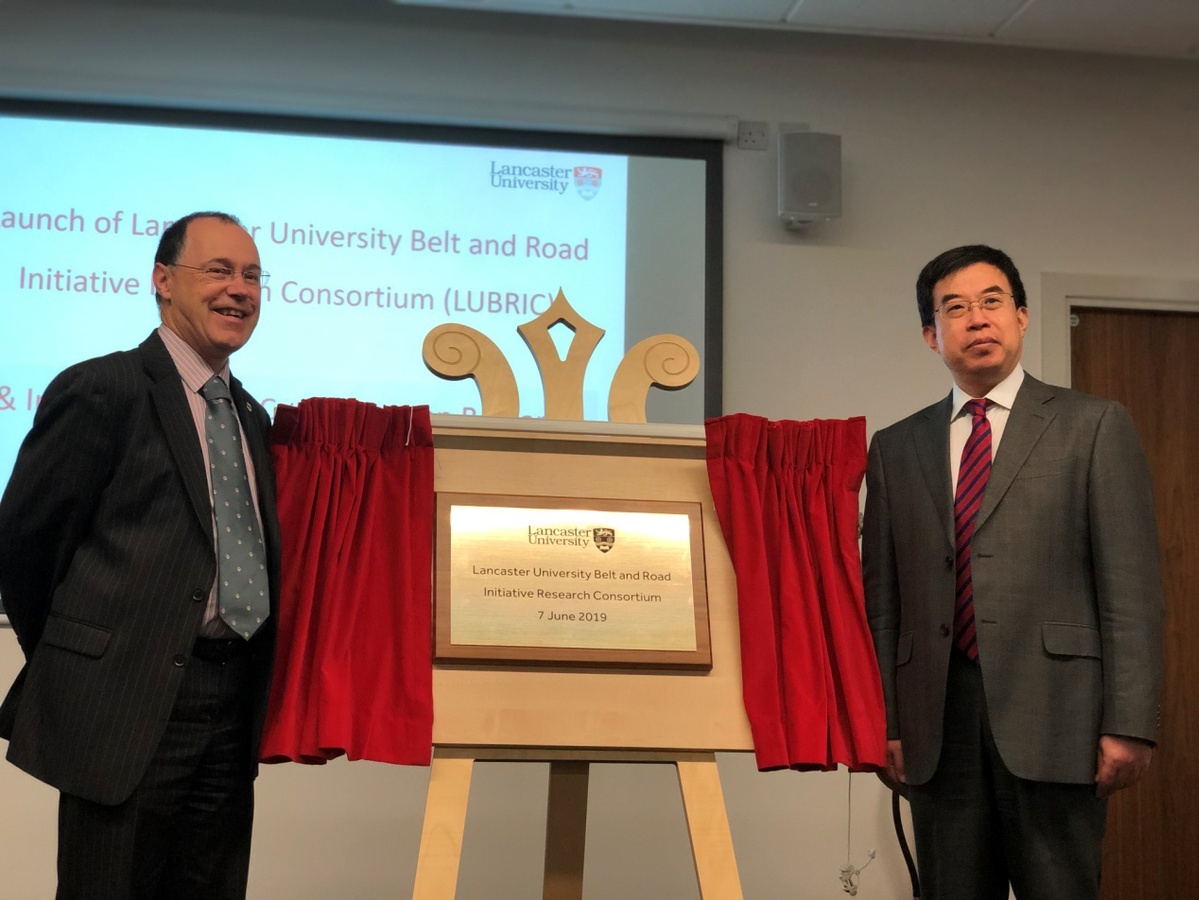Belt and Road Initiative research center opens in UK


BRI research center opens at Lancaster University
A new Belt and Road Initiative research center was unveiled at one of the top 10 ranking universities in the United Kingdom, aiming to establish a global interdisciplinary hub that focuses on the most pressing challenges emerging from the initiative.
The Lancaster University Belt and Road Initiative Research Consortium was officially launched on Friday, the same day as when the Guardian University Guide released its latest university league tables, placing Lancaster at seventh in its ranking.
Speaking at the ceremony, Vice-Chancellor Mark Smith recounted the links between China and the university dating back to the 1970s, saying the launch of the consortium is one of those new developments that means the relationship continues to get deeper and richer.
"The LUBRIC will put us in a strong position to help understand the leading research into the development of the Belt and Road Initiative (known as BRI)," Smith said.
Steve Bradley, deputy vice-chancellor of Lancaster University, who has been actively building up partnerships with China and was directly involved in setting up the Confucius Institute in Lancaster, said what sets the consortium apart from other BRI research centers is its "interdisciplinarity".
"The new initiative will bring together a number of colleagues from a number of different disciplines with different prospective to look at the issues around BRI," he said.
The university has four different overseas campuses across the world, including China, Malaysia, Germany and Ghana. Bradley said this is a good strength for the university to build connectivity and stimulate research projects that bring together academics from all those countries regarding growth and development issues around the Belt and Road countries.
Yang Xiaokun, minister counsellor at China's embassy in London, welcomed the establishment of the new center, saying, "LUBRIC could become a world leading research base on the BRI as there are so many BRI-related ideas and facts worth researching.
"We hope that LUBRIC could work with its partners, observe the different aspects of the BRI and its influence on the world, exchange ideas and share experience, and give valuable advice to the governments," Yang said.
He added the new research consortium could potentially become a platform for China-UK cooperation, extending and further strengthening the ties between Lancaster University and its partners in China, to produce more "golden fruits" and contribute to the "Golden Era" of the China-UK relationship.
Emilian Kavalski, director of the Global Institute for Silk Road at Nottingham University in China's Ningbo, who was one of the panel speakers at the interdisciplinary conference on BRI as part of the consortium launch program at Lancaster University, said his initial reading for the BRI project is a way for China to demonstrate that it is a responsible stakeholder and is willing to work with other countries around the world.
But he noted the initiative has come across difficulties in some countries, which is caused by the misperceptions and prejudices toward China, and a lack of knowledge about China and what China wants to do.
Kavalski pointed out that the main challenges lie in "how to manage its focus and manage that initiative when it's involved in such diverse and multiple regions around the world".
Given the large scale of the BRI, which involves more than 60 countries, Kavalski said, "Starting with small-scale projects might be more effective and bring more benefits long-term for China, rather than trying to do multiple projects at the same time in different regions."
With the advantages of building collaborations with campuses across the world, Bradley conceded that for the BRI to be carried out successfully, China should "build strong trusting relationships with key stakeholders in each of the countries, in order to deliver the projects, but also to sell the vision of what they are trying to achieve".
































